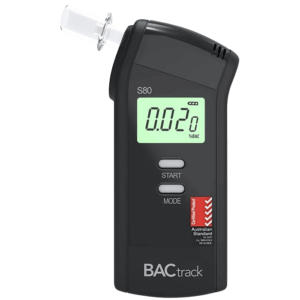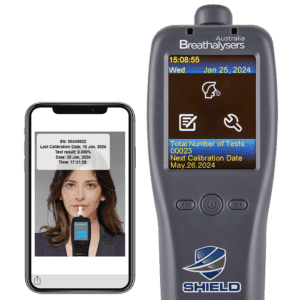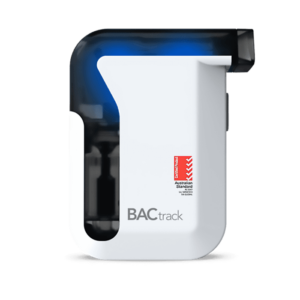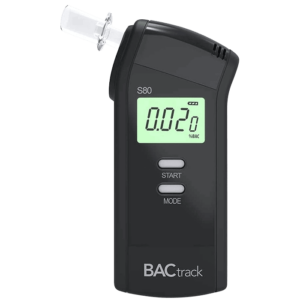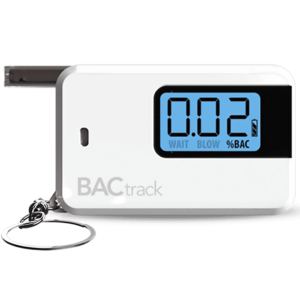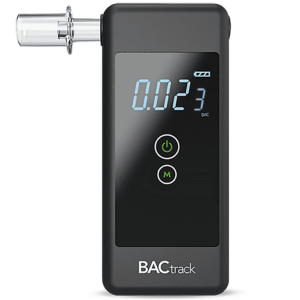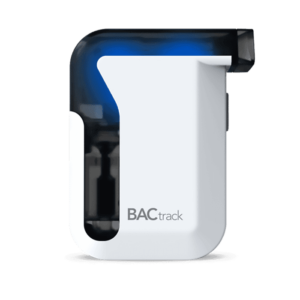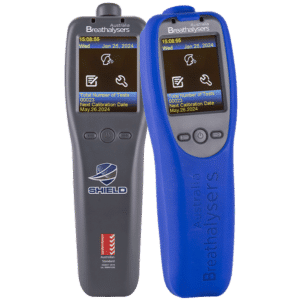Alcohol Test Over the Counter: Definition, Types of Tests, & Legal Limits
12 March, 2024

Alcohol test over the counter refers to a portable and convenient way for individuals to determine if a person has been drinking. It can also measure Blood Alcohol Content (BAC) or intoxication level. Many types of alcohol tests are available, such as breathalyser, urine, and saliva testing. By using these methods, individuals can easily monitor their alcohol consumption and ensure they are not over the legal limit in New Zealand, which is 0.05% BAC.
Alcohol testing is essential in various settings to ensure safety, whether in private or public areas. It can help individuals make informed decisions and avoid potential legal charges. In addition, stricter laws are being implemented to prevent alcohol-related accidents and promote responsible drinking. To learn more about the tests, the following sections will present the definition of alcohol tests, the different types available, and the legal limits to be aware of.
What is an Over-The-Counter Alcohol Test?
An over-the-counter alcohol test is a portable and convenient way to check the alcohol content of a person. These tests are typically available in pharmacies and online retailers without a prescription. They provide rapid results from the point of sample collection without requiring professional equipment or assistance.
This type of test offers various benefits. One of the benefits is an affordable way to detect recent alcohol consumption. It involves collecting different biological specimens and analysing them for the presence of alcohol or metabolites. These tests may use a variety of techniques and technology to achieve results. Most alcohol and drug test kits use enzyme-based assays.
Individuals who want to track their alcohol intake may purchase one. This need may be for safe driving, employment purposes, or personal health reasons. Similarly, organisations that need to test their employees can use over-the-counter alcohol detection devices as a cost-effective solution. It is important to note that while they can provide a quick result, they may not be as accurate as professional or laboratory testing.
Importance of Alcohol Testing
- Personal safety: Allows individuals to monitor their BAC levels for health reasons and to prevent severe impairments. Thus, testing helps deter drink driving and accidents.
- Public safety: Law enforcement conducts alcohol tests on roadside screenings to identify drivers who may be under the influence of alcohol.
- Employee protection: Workplaces implement an alcohol policy to monitor employees who may be working while impaired. It can also help identify individuals who may need intervention or treatment.
- Rehabilitation: Track the recovery progress of patients with substance use disorders.
- Legal proceedings: Provide evidence of alcohol use in situations where alcohol is prohibited, like Driving Under the Influence (DUI) cases.
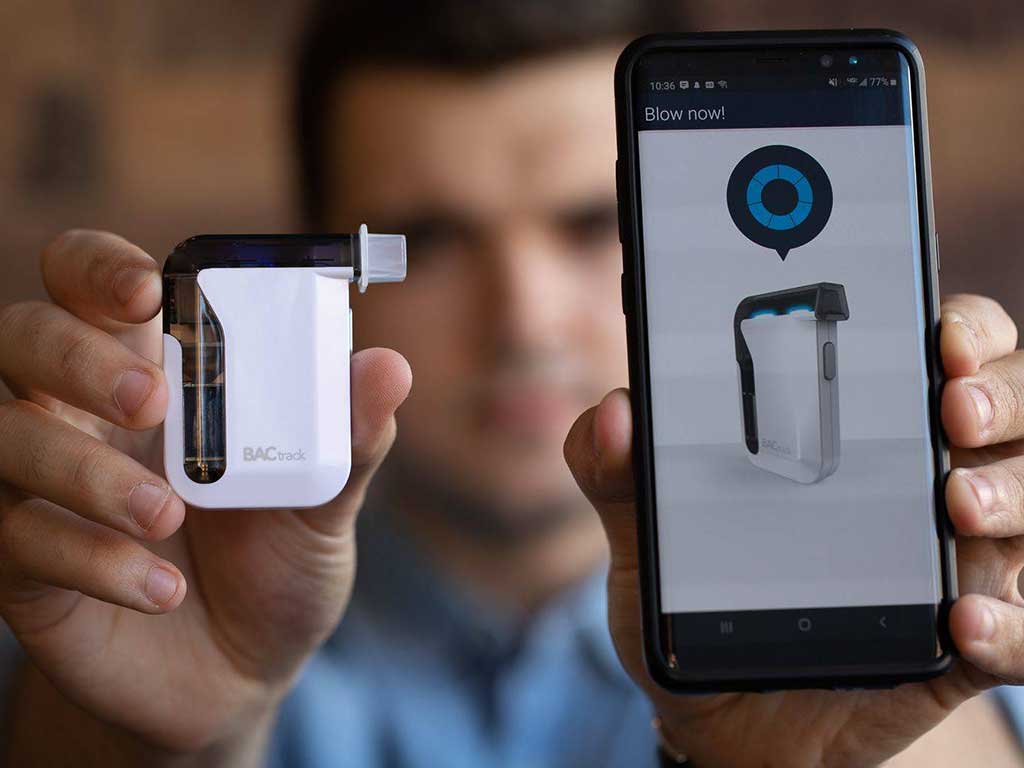
Types of Over-The-Counter Alcohol Tests
There are several options for over-the-counter alcohol tests to choose from. The first and most convenient type is the breathalyser test. It involves the use of a compact alcohol detector that uses sensor technology. It works by analysing the breath sample of the individual to measure their BAC level. Breathalyser tests are easy to use and provide results in seconds.
Another type is urine alcohol testing. This method involves collecting a urine sample through a container cup provided in the kit. Urine tests can provide a longer detection window, making it suitable for monitoring alcohol consumption for the past few days. Additionally, it comes with different kinds, such as alcohol test strips and integrated urine cups.
Furthermore, a saliva alcohol test kit is available for purchase. This type involves collecting saliva samples through a mouth swab. It is also easy to use and provides rapid results, making it a convenient option for testing. The uses of these different types may depend on the particular situation or testing.
How Alcohol is Detected in the Body
Alcohol is a volatile substance that is quickly absorbed in the body. After ingestion, the liver breaks down alcohol into enzymes. Alcohol molecules circulate the body through the bloodstream, where they enter various organs. In particular, alcohol that enters the lungs mixes with alveolar air and exits the body through exhalation. Hence, when a person blows into the breathalyser, the device can detect it.
Another way to detect alcohol is through bodily fluids. Collecting a sample of urine and saliva can trace alcohol metabolites. Also, alcohol is traceable in blood samples for 6-12 hours after consumption. However, blood testing requires laboratory testing.

Over-The-Counter Alcohol Test – Legal Limits for Alcohol Consumption
The effects of alcohol are apparent within minutes after consumption. It can produce several effects, such as elevated mood, euphoria, and lowered inhibitions. However, the more a person consumes in a short period, the higher the blood alcohol levels will increase. Consequently, this can cause more pronounced impairments, like blurred vision, slurred speech, lack of concentration, slow reaction time, and poor coordination.
These impairments pose significant risks, especially when driving. It can lead to vehicle collisions and fatalities. For this reason, law enforcement sets legal limits on alcohol for driving. The general limit for drivers 20 and above is 0.05% BAC, while zero is for people under 20.
Individuals driving with a BAC above their prescribed limits may face legal charges, such as fines, license suspensions, and even imprisonment. Therefore, many consumers purchase over-the-counter alcohol test kits, like a personal breathalyser, to test their BAC before driving. By being aware of the current alcohol concentration, individuals can make informed decisions and avoid the consequences of exceeding the legal limits.
Factors Affecting BAC Levels
Various factors affect the increase of BAC levels. One major factor is the type of drink and the rate of consumption. Different alcoholic beverages (wines, beer, mixed drinks) contain varying amounts of alcohol by volume. Those with higher alcohol content tend to increase the BAC more rapidly, even in small amounts.
In addition, factors like body weight, gender, age, metabolism, food consumption, and hydration levels can also influence the BAC. In particular, the rate of metabolism varies from person to person. Therefore, even if two people were to drink the same type and amount of alcohol, they are less likely to have the same BAC.
Conclusion
Over-the-counter alcohol tests are valuable tools in confirming if there is alcohol in the body. It is beneficial for individuals looking to monitor their alcohol consumption or ensure they are within legal limits before driving. These tests come in various forms, such as breathalysers, urine tests, and saliva tests. Each method has its advantages, screening techniques, and detection windows. Moreover, it is essential to understand how alcohol affects the body to make informed decisions about drinking and driving.
By knowing the legal limits and factors that affect BAC levels, individuals can prioritise safety on the road and prevent dangerous situations. Thus, knowing the options available can help people determine the most suitable method. For those who need quick and reliable alcohol tests, a breathalyser is often the most efficient choice. It provides a digital BAC reading for convenient checking and enables multiple testing.



















